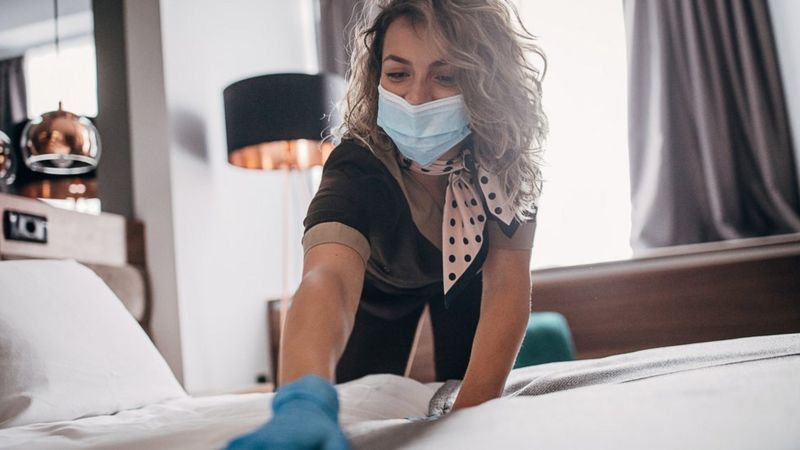Вы не зашли.
#1 27/10/2020 12:31:28
- lily9889
- New member
Broken city breaks leave hotels half empty
Broken city breaks leave hotels half empty 
- A new study finds Scottish city hotel room rates are sharply down, and with so many empty rooms, revenue more so.
- Even with a Covid-19 vaccine, a return to 2019 levels is expected to take four years, with London struggling most. The business travel market may never recover.
- Rural hotels appear to have done much better, with a staycationer preference for going somewhere quiet, and especially for fresh air by the seaside.
If you want an evening meal in a restaurant, for now, you're out of luck. That's unless you book into the hotel where your eaterie of choice is located.
It sounds a high price to pay, but it may be much less than you might think. Room rates have plummeted.
That's good news for those willing to take the risk of venturing out and staying in a hotel, including some whose work requires them to do so.
To reduce infection risk, hotels are investing in contactless check-in and keys, digital concierges and, with comedy potential, interactive devices in your room.
But it's really bad news for hoteliers. While pub licensees and restaurant owners are to the fore in warning of grave danger to their businesses, hotels have a lower profile.
That's partly because some hotels have been doing well since lockdown was eased. With staycations booming, rural hotels, and even more so remote coastal ones, have been enjoying healthy occupancy rates.
Where recruitment of EU nationals has become very difficult, the labour market has delivered a rich choice of home-grown talent to work wherever there's work, including remoter locations.
Festival bonanza
But it's a very different story in city hotels. They often rely on business travel through the week, but that means meetings and conferences, which aren't happening. At the weekend, the leisure city break market checks in, but the appeal for them would normally be music, theatre, nightlife and shopping.
PwC, the business advising firm, has run the numbers and published them today in their 2020-21 forecast. They're no less startling than we've come to expect from the economy this year.
In Edinburgh, the average cost of an overnight stay has fallen by around a third this year, to £70 per room. That still leaves it the UK's third most expensive city location after London and Brighton.
Business as usual
If you're wondering about Dundee, Inverness, Stirling and Perth, you'd better ask PwC, whose study doesn't include the smaller cities. My guess is that they have more accessible rural hinterlands, and depend less on nightlife and business travel, so they may not have taken as big a hit as the bigger cities.
Where does this leave PwC's forecast? Not in a good place. After nearly 50 years of this annual survey, the outlook has never been worse.
The growth in occupancy across the UK in 2021 is expected to be 55%, up from 42% in the year to last July. It looks like four years until travel numbers recover to pre-pandemic levels.
London looks set to take the biggest hit, having vast capacity aimed at huge visitor numbers from around the world and around the UK, for both business and leisure.
You can find details on this and other issues here. : pgslot
Неактивен
